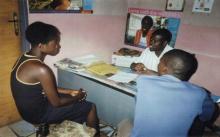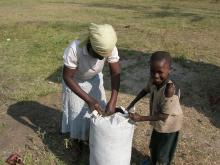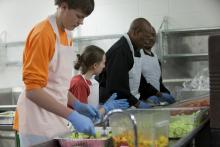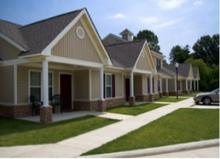Working to Reduce the Recidivism of Homelessness in Michigan
In 2008, South Oakland Shelter (SOS) initiated a redesign of its supportive services for people struggling with homelessness and began working with previous shelter clients to prevent repeated episodes. They provided departing clients with an array of services and support after exiting into the community or while receiving housing assistance. This program substantially increased services available to former clients, including ongoing individualized case management; education and life skills-based classes; mentoring; and support groups.
UYP: Promoting the Quality of Young People living with HIV/AIDS in Uganda
Uganda Youth Positives (UYP) is a group of mobilized and coordinated young HIV-positives with a mission to promote the quality of life for young people living with HIV/AIDS and to reduce the HIV prevalence rate among young people. The UYP drama team conveys messages of HIV protection, anti-stigma, and discrimination in schools and communities. UYP also trains peer educators in schools who pass on messages of protection and anti-stigma to their fellow peers. This has yielded a great result of behavioral change amongst the young people.
Providing HIV/AIDS Education in Lusaka – Zambia, Africa

The community had a problem with high death rates of parents due to the HIV/AIDS pandemic. These deaths were attributed to lack of HIV/AIDS prevention literacy, condoms, sensitization, and treatment and led to a growing number of orphans and vulnerable children without parental support who, as a result, often became involved in harmful practices.
Making Wellness a Priority at the University of Maryland
In January of 2008, the University of Maryland Campus Wellness Coalition formed to address the health and wellness of the College Park campus community. Student wellness affects academic success, but it seems that often wellness is seen as an individual concern, rather than a campus priority.
Using Environmental Technology to Support Wetland Villages – Kenya, Africa

Lake Victoria Wetland Villages experience multiple problems. These problems include many water-borne diseases as locals depend on rivers, lakes, springs and wells with water that is contaminated with human fecal matter and other contaminants for household consumption. Additionally, wetlands are experiencing degradation, and biodiversity is decreasing through anthropogenic activities such as reclamation for farming and settlement, burning, and over-harvesting of wetlands vegetation. These practices lead to the impairment of crucial ecosystem goods and services.
Providing Produce for Low-Income Populations

America’s dependence on processed food has produced an array of detrimental effects—heart disease, diabetes, and obesity chief among them. These interrelated problems are particularly pronounced in low-income minority populations, and especially so for women and children. The District of Colombia exemplifies this crisis. Feeding America reports that 29% of DC’s children—over 30,000 in all—live in poverty. Our food insecurity and unemployment rates both exceed the national average. For far too many people, poor health and poverty constitute a vicious cycle of dependency.
Training Hospital Staff in Teaching Child Patients How to Play
The Life is Good Kids Foundation helps kids overcome life-threatening challenges such as violence, illness and extreme poverty. Their Playmakers Initiative provides training, resources and support to the adults dedicated to caring for these children so that all involved lead healthier, more joyful lives.
Community Bike Shop Initiative
In 2010, the Holyoke Food and Fitness Policy Council proposed creating a community bike shop to offer community members free classes on how to build, fix, and maintain bicycles. The aim of the project is to provide a fun, effective way to address obesity, limited access to recreation, and the need for leadership / job skills development.
Comprehensive Community Strategic Planning to Revitalize the Rural South - Southern Bancorp - Arkansas

Southern Bancorp has the mission to revitalize struggling rural communities in Arkansas and the Mississippi Delta. For years, Southern Bancorp invested millions of dollars to mitigate poverty in these communities, but the effort failed to have a significant impact on reducing poverty. Southern’s innovative strategy is to build long-term partnerships with residents, local leaders, the business community, nonprofits, and other stakeholders to establish community goals, build capacity to achieve them, and maintain momentum until the goals are achieved and the community begins to turn around.
Healthcare and Community Empowerment Programme
2007, The Life Community Based Organization was formed, with the mission of serving the poor and marginalized communities in the Kariobangi and Korogocho slums through participatory engagements aimed at addressing their felt needs and aspirations for better health. The program had four components: HIV/AIDS prevention, Orphaned and Vulnerable Children Support, Community Pharmacy and Essential Drug Supply, and Comedy in Healthcare Initiative.


